Advertisement
In New Bedford, housing costs are soaring as many struggle to make ends meet
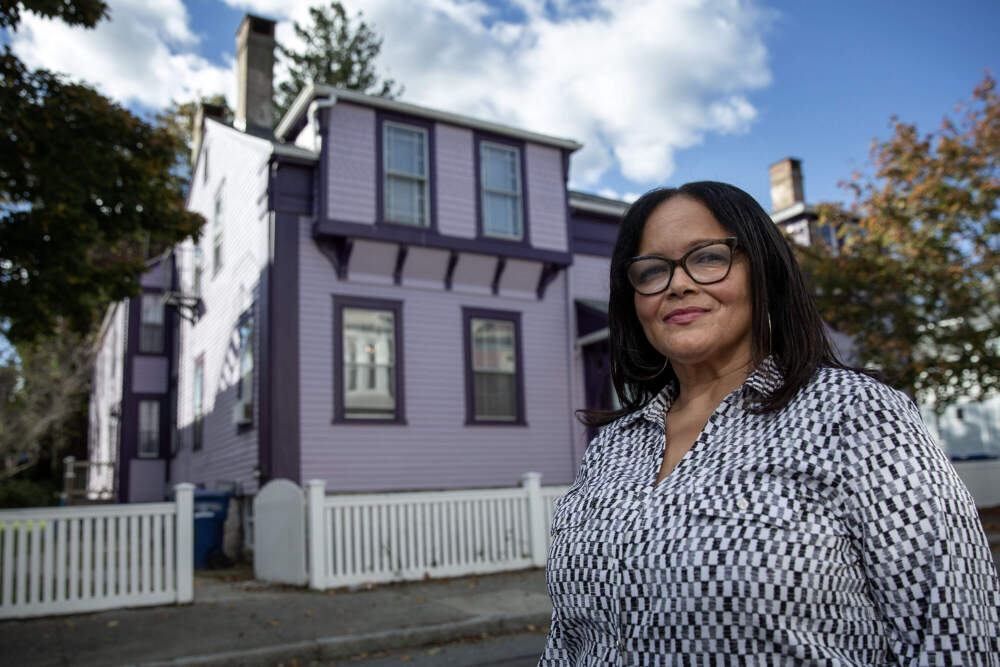
NEW BEDFORD — Sherry Barros sat on her twin sister’s front porch, taking a break from one of her three jobs to talk about rising rents in this city 60 miles south of Boston, best known for its fishing industry.
Barros was born and raised in New Bedford. Her father worked as a longshoreman, on the docks just blocks from downtown, earning enough for the family to live in one of the nicer parts of the city. To Barros, this has always felt like a close-knit village, and an affordable one. She remembers when her rent was just $18 a week, back in the 1970s.
By the '80s, rent was about $25 a week, rising in time to $100, she said. Then it started jumping faster, from $250 to $500. In 2020, Barros' building was sold to an out-of-state firm that's been purchasing dozens of apartments in the city. The new landlord nearly doubled her rent.
The soaring housing costs have come to a tipping point for Barros and other longtime residents. Amid a wave of gentrification, some wonder whether working class people will continue to have a place in New Bedford.
"We made New Bedford what it is," she said, taking note of the Portuguese, Latino and Cape Verdean neighborhoods. "It's a mixed community. It's a beautiful one. But why are we destroying it?"
At age 62, instead of thinking about retiring from her job as a social worker, Barros said she’s taken on two more jobs: caring for her disabled sister and doing food deliveries. She said she has to skip meals to afford the higher rent.
"I figure if I eat a good meal one time a day, I'm okay, I'm making it," she said. "I just got to have my coffee in the morning."
But Barros' fears go beyond herself.
Many low-income residents say rent hikes are forcing them out of the city, or even to the brink of homelessness. That presents a sharp contrast with the official version of New Bedford: a city on the rise, and on the cusp of regaining the esteem it once knew.
A portrait of progress
Down on the waterfront, the docks are teeming with welders, painters and other tradesmen prepping fishing vessels for their next voyages. Off in the distance, you can see cranes at the New Bedford Marine Commerce Terminal, built to serve an offshore wind industry that's just starting to come to life.
"New Bedford is headed in the right direction, and solidly progressing," Mayor Jon Mitchell said in his state of the city address earlier this year. He highlighted the city's advances by first recalling how it looked a decade ago: "Double-digit unemployment, precarious city finances, a school department under state monitoring, and a general sense that the city was unsafe."
Now, Mitchell said, New Bedford is enjoying a turnaround on each front. And the long-anticipated South Coast Rail extension, connecting New Bedford to Boston, is supposed to finally open in summer 2024. Leaders for three decades have hoped the rail service would help stimulate the local economy. It also has fueled real estate speculation, long before passengers could board a train here.
Advertisement
Terra Incognita Partners is the Rhode Island company that bought Sherry Barros’ place in 2020. Isaiah Osofisan, a manager for the company, said New Bedford has potential that few spots in southern New England can match.
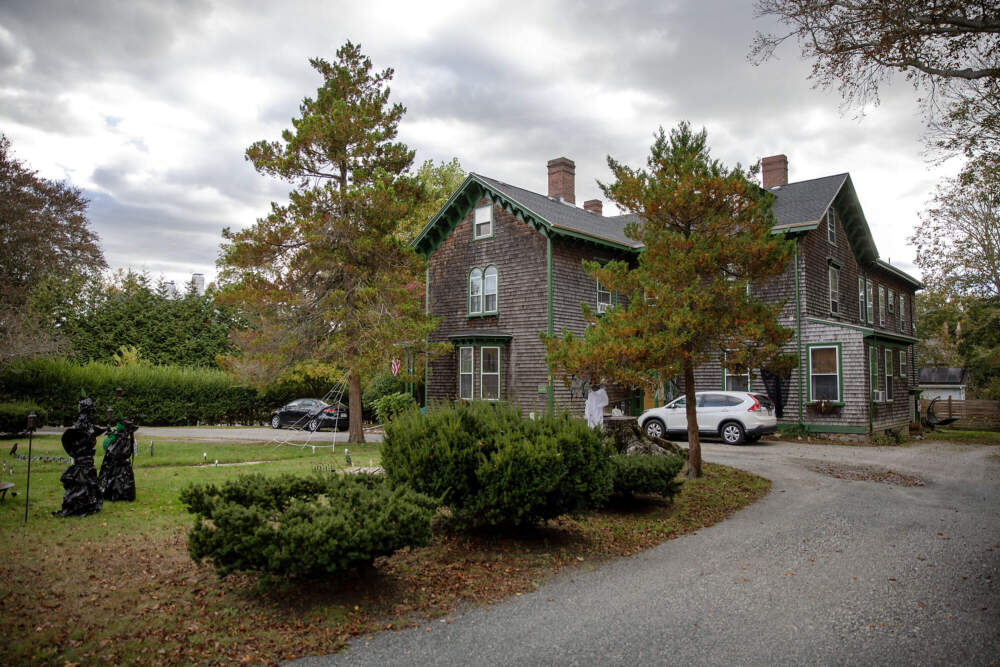
"We looked at investing throughout the South Shore, throughout Rhode Island, areas of Connecticut," he said. "And New Bedford was a place that was very interesting." That's because it enjoys "big tailwinds," in his view, powered by local colleges, the working waterfront, an array of art venues, and a growing culinary scene that's attractive to millennials.
Above all, Osofisan said, New Bedford has the energy of a coastal city, and the company wants to grow its footprint there.
Since 2020, the company has purchased 12 multifamily buildings — ranging from four to 24 units each — in New Bedford for a total of nearly $8 million, according to public records.
Osofisan said the company has invested $4.5 million in renovations, making buildings more energy efficient, and carrying out upgrades in keeping with New Bedford's historic aesthetic.
But these costly renovations often make apartments less affordable for residents.
"When you make that investment for a 10-year or 20-year period, you're going to have to recoup that," Osofisan said, arguing that improvements in housing quality mean "you're able to justify that increase in rent."
And, he added, "That's capitalism."
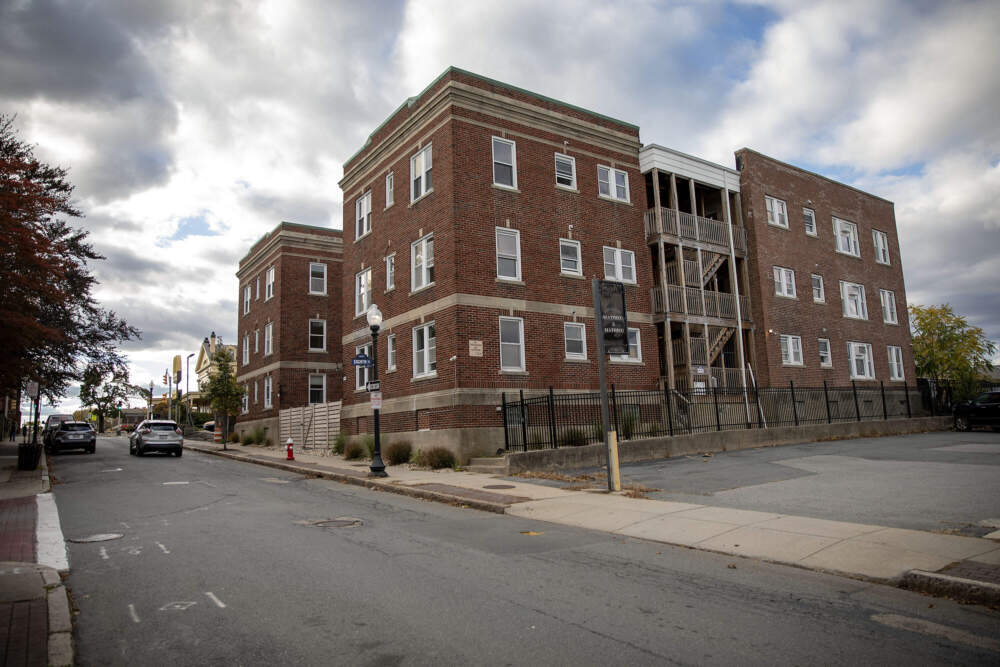
Osofisan said New Bedford isn't lacking in people who can afford the higher rents. Many of his tenants came to New Bedford from Cape Cod, where they continue to work, but can't afford to live, he said.
Some are skeptical about the long-term prospects of a city with such rapidly increasing housing costs.
"I've seen these cycles before," said Martin Correia, a real estate agent who's done business in the city for three decades. "People come in, they buy, buy, buy, buy, and they change the market a bit."
Prices may level out eventually, Correia said. But he's concerned that wages simply aren’t keeping up with the cost of housing in the region. "Income is the biggest thing," he said. "I don't think that the income supports the prices that we are getting into, and even the rental prices."
Then there's the inventory problem.
In his office in the north of New Bedford, Correia scrolls through home listings to show how little is on the market — about a quarter of what he said are historic levels. Rising interest rates are one factor preventing homeowners from selling or buying in this environment, experts say, as a new mortgage could have a rate two or three times higher than the prior one.
Property values in New Bedford have jumped over the last four years. The city's median single-family home prices started far lower than the state overall, but have risen 50% since 2019, faster than Boston and the rest of Massachusetts, according to data from the Warren Group in Peabody.
Calls for rent control
Many longtime residents feel the lofty visions of a future New Bedford were never intended for them. Community activist Erik Andrade has spent more than a decade calling out the gentrification taking place in the city's core, a historically diverse neighborhood where, he said, residents are facing wide displacement.
He has a dark take on what some consider progress for New Bedford: "Homelessness, an increase of couch surfing, folks working three to four jobs to try to maintain, folks moving in with other people, people just leaving the city."
" I've seen folks with degrees from prestigious schools that are homeless in the city right now," Andrade said. "People are living with their parents, moving in with friends. People are living in their cars."
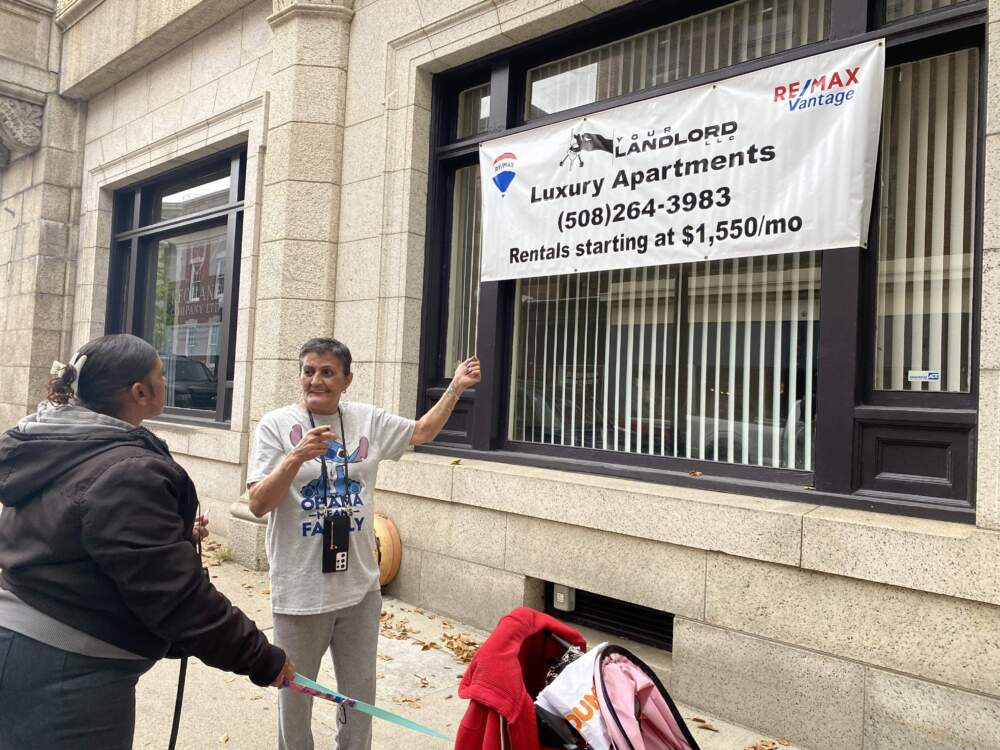
All this has led to calls for rent control in New Bedford, which shares a spot alongside Fall River as the second poorest city in Eastern Massachusetts, after Lawrence, according to Census figures.
"Obviously the goal is to build more housing units. That takes time," City Councilor Shane Burgo said. In the interim, he said, he's pressing for ways to help keep lifelong residents in their homes.
Earlier this year, Burgo tried to get a question on the ballot to poll residents on their appetite for rent control. It passed the City Council, but Mayor Mitchell vetoed it, and Burgo couldn't muster the votes for an override. The mayor opposes limits on rents, which he argues would stifle development.
The city recently issued a roadmap to address its housing shortage, led by housing chief Josh Amaral. He argues that, despite recent home value increases, New Bedford is still among the cheapest places to live in the state. But more construction is needed.
"We don’t want people to be priced out of living in New Bedford," Amaral said. The city's housing plan proposes increasing rental assistance, expanding first-time homebuyer and home repair programs, he said, while also working with housing developers to build more units.
'Evicted from New Bedford'
These long-term plans don't help the people who are already spending their days hunting for apartments they can afford.
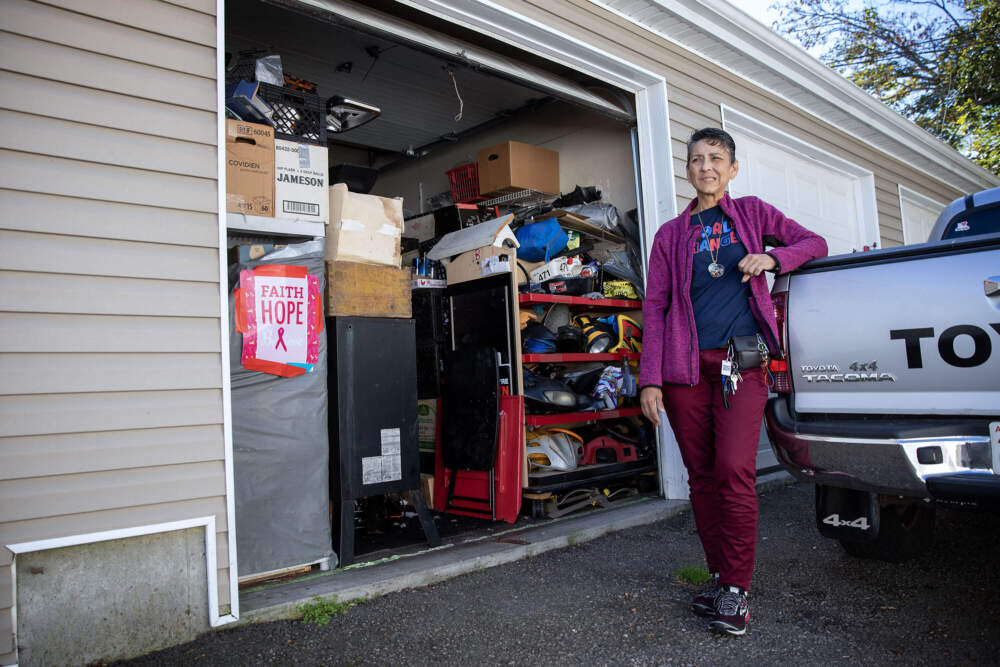
Angie Vargas, 54, has been living out of her pickup truck for the last three and a half months. Vargas said she spent 16 years in the same apartment before it was sold to a Boston investor, a transaction confirmed in public records.
"I sleep here in my truck with my two little dogs," she said in Spanish. "And it all started on the Fourth of July. I had my independence — but on the street!"
A decade ago, Vargas was a prominent leader in the city's Puerto Rican community. Now, she said, the stress of homelessness is taking a toll on her health. Earlier this month she suffered two minor strokes.
After pursuing dozens of apartments in New Bedford that fell through, she recently found a place in Fall River. Vargas said she didn't want to leave the city she loves, but she couldn't wait any longer, partly because her Section 8 voucher would expire. And she's tired of living in her truck.
"I feel like they're evicting me from New Bedford," she said in a text, "but at this point at least I'll have a roof over my head."
This article was originally published on November 01, 2023.
This segment aired on November 1, 2023.
